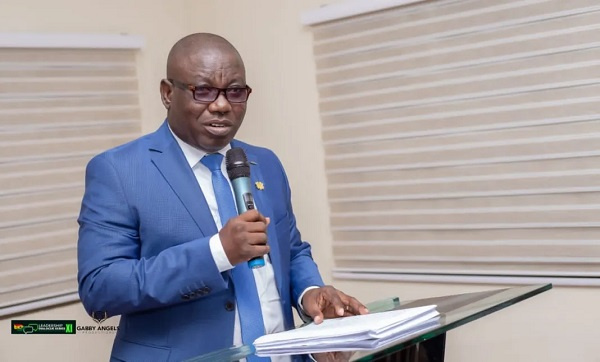
Shield citizens against austerity measures – Isaac Adongo
The Ranking Member of Parliament's Finance Committee, Isaac Adongo, has called for innovative ways to insulate Ghanaians against the full effects of the austerity measures being used to stabilise the economy.
The Member of Parliament (MP) for Bolgatanga Central said while fiscal consolidation was needed to ward off inflationary pressures and reduce debt growth for stability to return, it must be done with a human face to help reduce the risk of increasing the cost of living crisis facing the populace.
Speaking in an interview with Graphic Online in Washington D.C., where he is participating in the ongoing International Monetary Fund (IMF)/World Bank Group Spring Meetings, the chartered accountant called for increased social spending in the midst of the fiscal austerity.
While calling for expenditure cuts to reduce the deficit and contain debt growth, Mr Adongo said: “There is also the challenge of making sure that the social spending floor is not breached so that the poor that will be badly affected by this consolidation are properly taken care of.”
He further urged the government to complement the tight monetary regime from the Bank of Ghana (BoG) to mute inflationary pressures with commensurate fiscal policies to reduce the ripple effects of high cost of doing business, higher lending rates and a weakened private sector.
SLA
After enduring fiscal pressures and general vulnerabilities for years, Ghana’s economic challenges worsened from 2020 when the COVID19 pandemic collapsed growth and spiked expenditures.
The international capital market closed to the country in 2021 on the back of unsustainable debts and dwindling reserves – forcing the government back to the IMF in July last year for a 17th bailout request.
Although a staff-level agreement (SLA) has been secured, the final approval is still pending as external debt restructuring and financial assurances from the country’s bilateral creditors, which are to precede the Executive Board approval, drag.
Pro-poor
Even as the government pushes for the final approval, the Ranking Member of the Finance Committee said fiscal consolidation was a must to slowdown the build-up of the public debt.
“We also need to understand that a fiscal consolidation that is not properly clustered, moderated and is not adequate enough may lead to longer spells of sacrificing growth and marginalising opportunities for Ghanaians to improve upon their livelihoods.”
“So, yes, we need to do fiscal consolidation but it must be done in a way that minimises the disruption of public service and social services to protect the poor,” he said.
Revenue angles
After back and forth, Parliament, on March 31 approved three revenue bills as one of the conditions precedent to the country securing final approval for the bailout request.
Mr Adongo said while the push for higher revenues was key in the move to consolidate the fiscal, spending cuts were critical to help spread the burden uniformly.
He called for innovative ways to reduce the rigidities to spending, noting that while the debt restructuring would help to address the ballooning interest payments, something urgent was needed to slowdown the strong growth in the compensation bill.
“We need to now look at other rigidities in the budget, particularly statutory funds and their alignments to government priorities.
“That should be a key focus for government so that they can be able to push a lot of these statutory funds into growth enhancing areas so that the economy can return to growth as quickly as possible,” the Bolgatanga Central MP said.
Lowered growth
Already, the IMF has revised Ghana’s growth downwards to 1.6 per cent for 2023 this month from 2.8 per cent in October last year.
The fund said the lower growth prospect was in line with general concerns that debt pressures and funding constraints would make it difficult for African economies, including Ghana’s, to expand at full potential this year.
Most countries in the sub-region are battling with funding squeezes after the international capital market closed on them over unsustainable debts and large deficits.